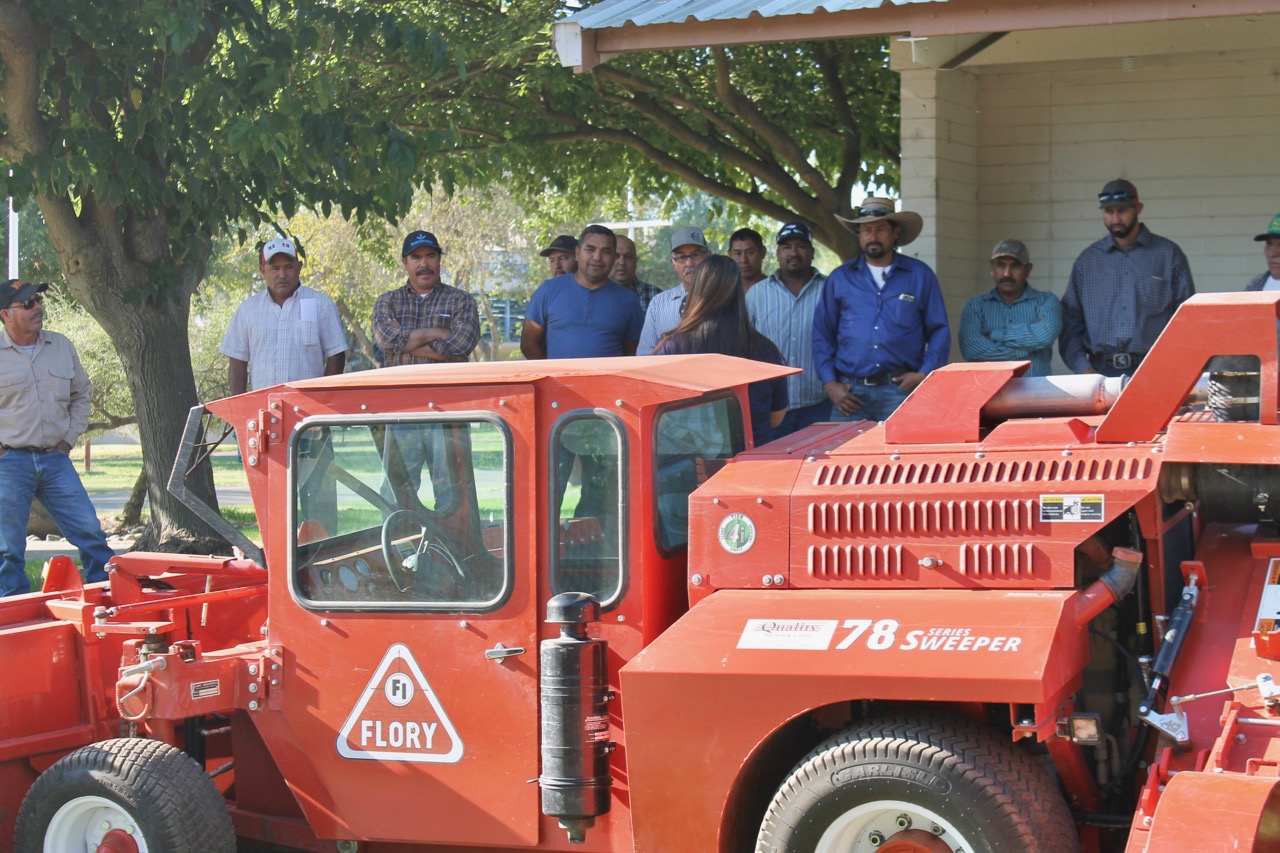
Nut Harvest Safety – Part 4
By Jessica Theisman, Associate Editor
On the job injuries are all too common in agriculture when working with tractors and other machinery. We spoke with Paul Williams, a senior loss prevention consultant with the State Compensation Insurance Fund, about the importance of farm equipment safety.
One big safety concern is unguarded PTO shafts and missing guards, which could also lead to a hefty fine. Checking these areas are part of the preseason inspections that should be done at harvest. Farmers should get out there and make sure everything is working properly.
“It is cheaper to repair equipment in the shop than it is trying to make the repairs in the field. Just proper maintenance and making sure things are properly guarded,” Williams said.
According to Williams, wearing seat belts while operating tractors is also extremely important. “Every year we get these fatalities operating tractors. Fifty fatalities a year maybe in tractors; they’re all so preventable,” he said.
“We are all used to driving cars in our California, wearing our seat belt. We get on farm equipment, all of the sudden we don’t know what that seat belt’s for anymore,” Williams said. “There are all kinds of excuses for not wearing a seat belt. At the end of the day, your safety is worth the extra three seconds it takes to put one on.”
Even if your tractor has rollover protection, it is very important to wear a seat belt as well. A lot of safety equipment is the cause of death when a worker does not wear their seat belt.
“They are ejected and tractors roll over and what kills the worker? It is that rollover protection that crushes them into the ground,” Williams explained.
Many workers rush because they think that it makes them more efficient. If you are being rushed, you are putting yourself at risk.
“The whole idea at the end of the day is to go home to your family, safe. Be able to return the next day to your work. You should always work to provide, to live, not live to work,” Williams said.









